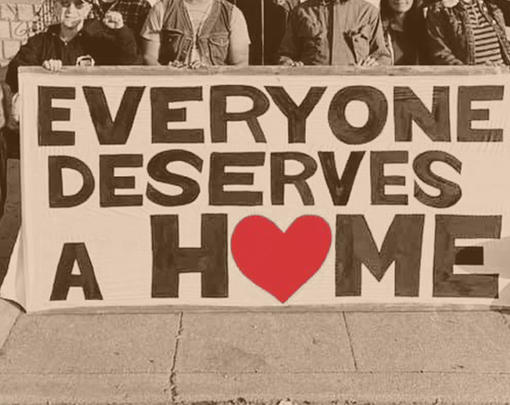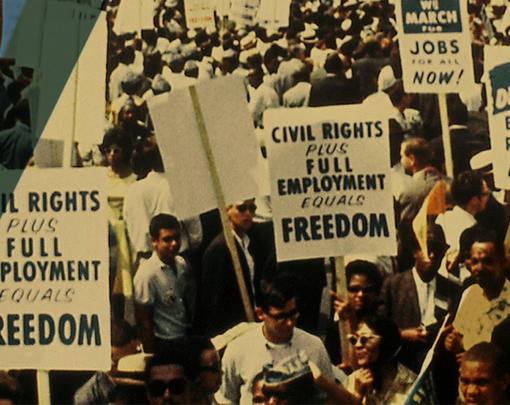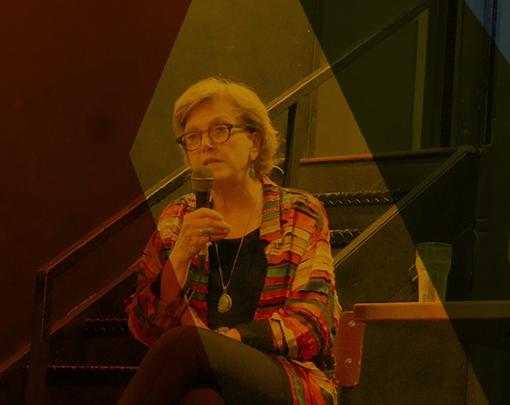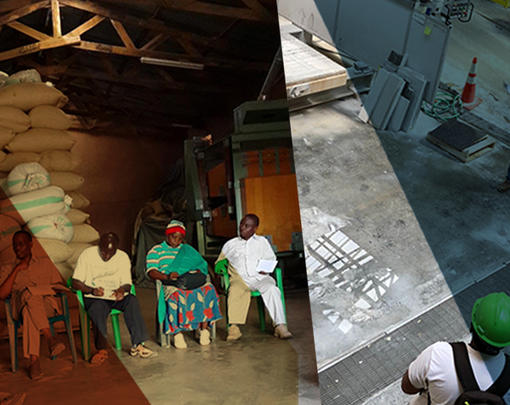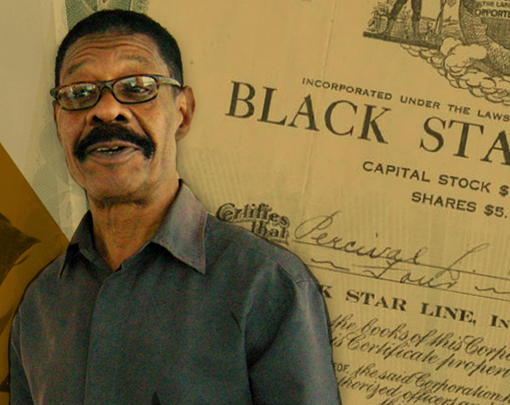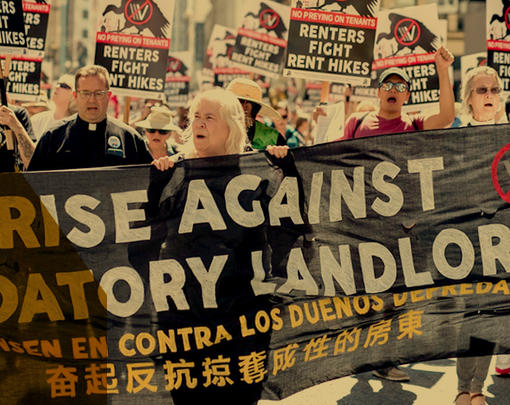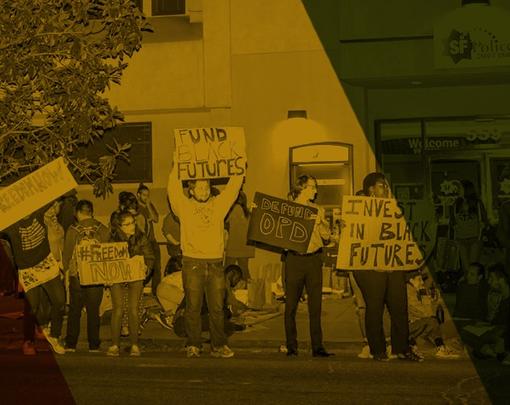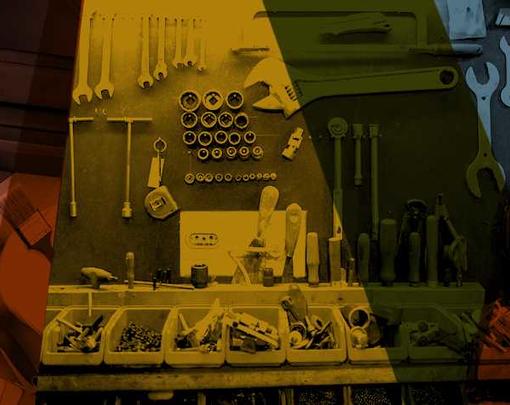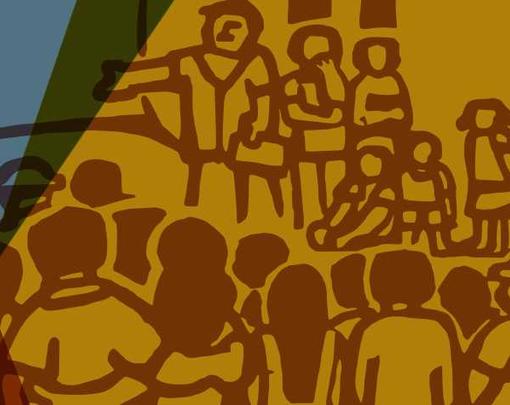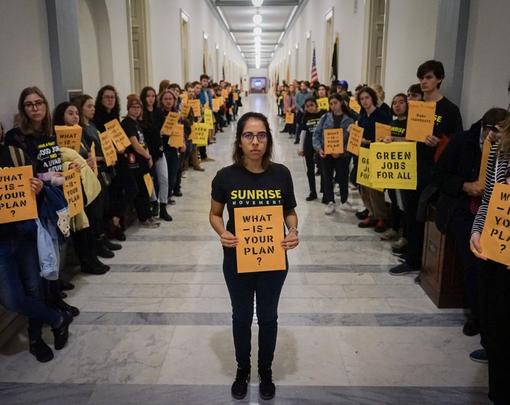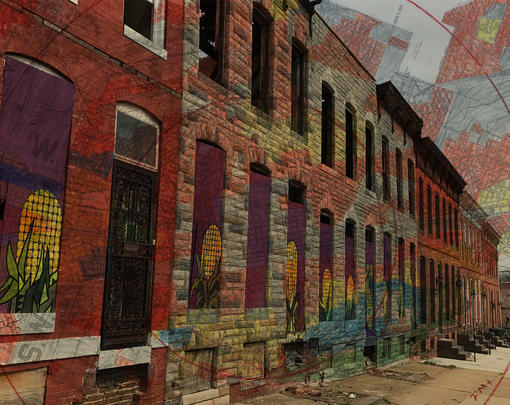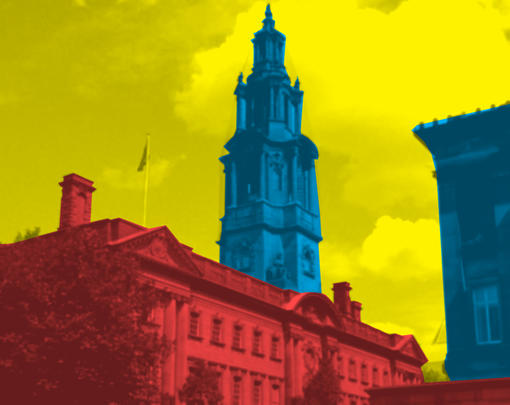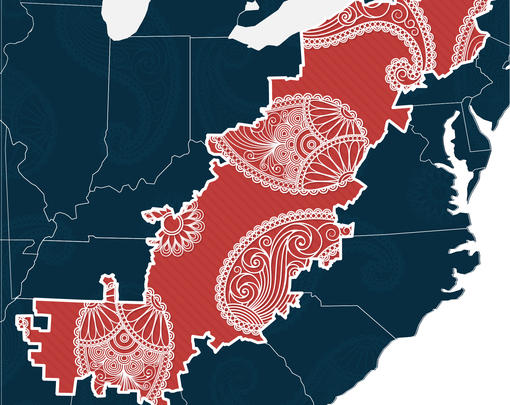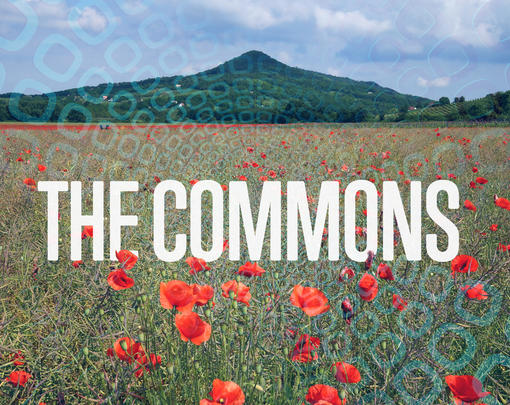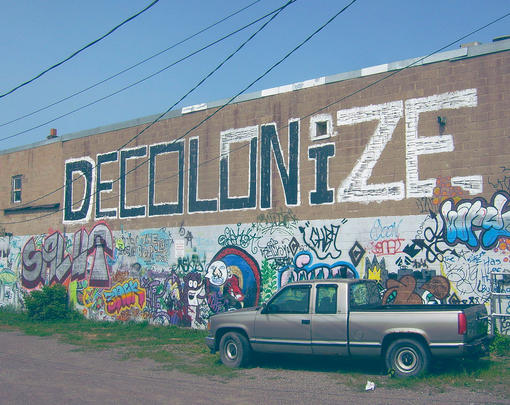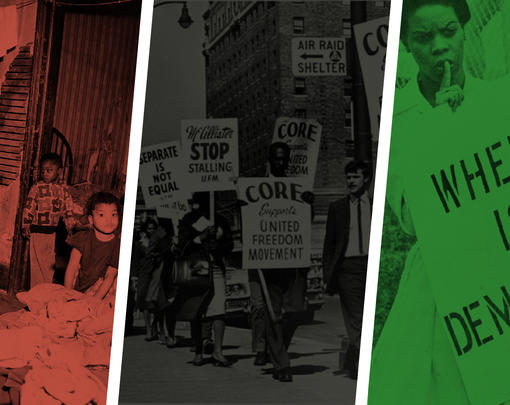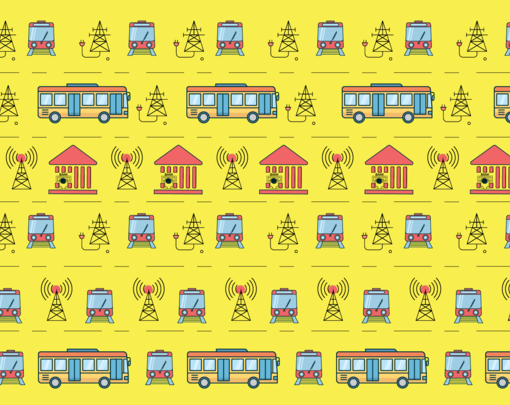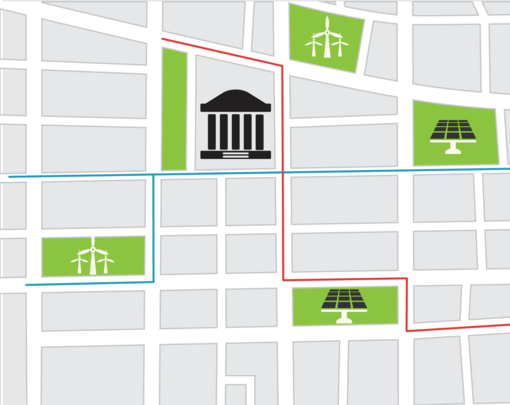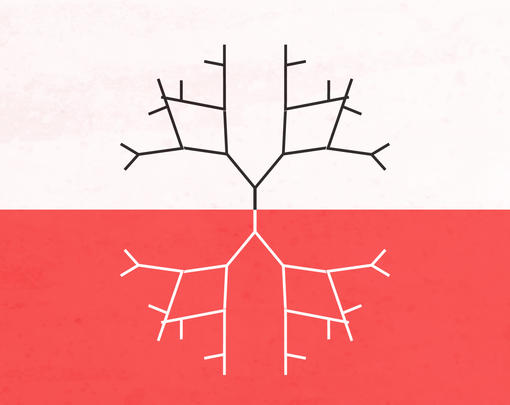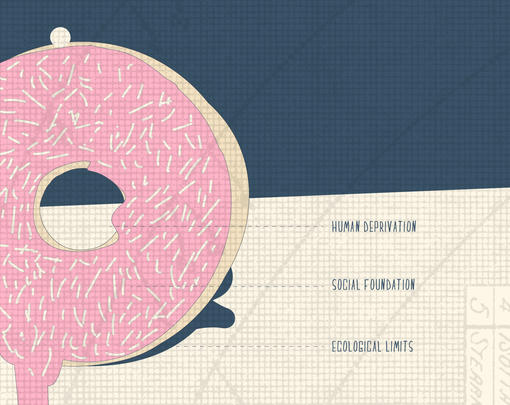This week Sarita Gupta sits down to discuss her work on Caring Across Generations. Sarita is the executive director of Jobs With Justice and the co-director of Caring Across Generations.
Subscribe to the Next System Podcast via iTunes, Soundcloud, Google Play, Stitcher Radio, or RSS.
Adam Simpson: Welcome to the Next System Podcast. This week Dana Brown and Cecilia Gingerich are guest hosts, leading the interview with Sarita Gupta on a project called Caring Across Generations. Dana is the deputy director of the Next System Project interested in community-centered healthcare and Latin American social movements. Cecilia is a Research Associate with the Next System Project interested in equitable rural development models as well as the next system of gender. And here they are now.
Dana Brown: I’m Dana Brown, and thanks so much for listening.
Cecilia Gingerich: And I’m Cecilia Gingerich.
Dana Brown: We are thrilled to be joined today by Sarita Gupta. Sarita is the Executive Director of Jobs with Justice, an organization dedicated to building a progressive labor movement that works in coalition with community, faith, and student organizations to build a broader global movement for economic and social justice. She’s also the Co-Director of Caring Across Generations, a coalition working to build a movement to transform the way we care as a society. We’ve asked her here today to talk about the future of care work and the intersections between caring, gender, and labor rights. To begin, Sarita, can you tell us how you define the goals of Caring Across Generations, and what brought you personally to that work?
Sarita Gupta: Thanks again for having me on the show. It’s great to be here. As you said, Caring Across Generations is a national movement of families, care providers, people with disabilities, aging Americans who are working together to transform the way we care in America, to ensure that we have affordable and accessible options for families to make sure that their loved ones can age with dignity. The goal of our campaign is to build the care infrastructure that we need in our country. That will require us to create the affordable and accessible options for aging adults and families. It also means we need to find more support for family caregivers, both working family caregivers and family caregivers in the home, as well as growing and strengthening the existing care workforce. Our goal is to build an infrastructure that does all three of those things.
For me, this is very personal. About five years ago, my father was diagnosed with Alzheimer’s. My mom was his sole care provider for the first year and a half, couple years. Then we realized as a family that she was very overwhelmed and needed support as well. She herself is aging and has pretty severe arthritis. About three years ago, my parents moved into my house. I live in a multi-generational home with my parents. At the same time as I am caring for and supporting them, I also have a seven year old daughter. I am a working family caregiver in the sandwich generation. My husband and I literally feel squeezed and we sometimes call it the panini generation, literally squeezed between meeting the care needs of my parents as well as my daughter.
Dana Brown: Wow. If I can just ask a quick follow up: I love how you talk about the care infrastructure that we need as a country. I have seen in some of the materials that Caring Across Generations has also talking about building a “caring majority” in this country. What does that mean to you?
Sarita Gupta: Here’s the thing. Care is a universal issue. Care touches everybody whether they realize it now or not. Actually, when I speak publicly about care issues and tell my own story, I often ask, “Who else has a care story in the room?” Almost everyone raises their hands. Care is universal. We believe, because care has been undervalued and invisible, people are made to feel like the struggle they’re having about meeting the care needs of their families or themselves is a personal struggle, and they hold it very close. But what we’re trying to say as a campaign is: actually, your experience matches up with your neighbor’s experience, with your other neighbor’s experience, and with other family members’ experiences. Isn’t it time for us to actually have a more public conversation about how we transform and create a system of care that meets all of our needs? Again, to make sure that we can all live, age, and work with dignity.
Cecilia Gingerich: There really seems to be a sense of urgency around this right now, with some people talking about a “care bubble” at the moment. Can you elaborate on exactly what that bubble is, and what it means to the future of care work?
Sarita Gupta: Absolutely. We are in the midst of an unprecedented elder boom. Every eight seconds, someone turns 65 in America—that’s 10,000 people a day, 4 million people per year. They are living much longer due to medical advances, and simply living much longer lives, which is a good and wonderful thing. It’s about 20 years longer than when our safety net was first put into place, which means that there’s tremendous strain on our safety net as our population gets older. We know chronic illnesses are also exploding as a result of longer lives. We need more supports for our aging population than we’ve ever needed before. We know every single American has someone in their family who is aging and is dealing with these issues of care.
Demographically, it’s a huge shift for us as a nation. We know that by 2040, about 30 million Americans will need some form of direct care just for daily living—let alone if they have chronic illnesses. Yet, we do not have the paid workforce that we need to meet this need right now. But when we talk about the elder boom, we have an opportunity right now to get in front of what could be a long-term crisis in how we actually ensure that aging adults and people with disabilities have the supports that they need to live with dignity.
Dana Brown: Fantastic. As we mentioned earlier, you wear two professional hats: as the Executive Director with Jobs With Justice and also as the Co-Director of Caring Across Generations. Can you talk to us a little bit about the relationship between those two bodies of work? Where do they intersect? How do they relate to one another?
Sarita Gupta: Absolutely. We came to the issue of care as a whole when we were supporting home care workers across the country who were organizing in various states for collective bargaining rights—the ability to shape their wages and working conditions. What we soon discovered was how vulnerable this population of workers are. Then we also realized that there’s a whole set of workers who aren’t hired through agencies. They’re actually hired by individuals and/or families, to care for people. This is one of the most vulnerable populations of workers. On average, home care workers—direct care workers—make poverty wages of about $9.00 an hour. In total, that’s about $13,000 a year. I just want to pause there. Can you imagine living on $13,000 a year?
Most people who care for our loved ones can’t sustain themselves or their families. Thirty percent of them rely on public assistance programs for food security. They lack any kind of benefits, including healthcare. For many of them Medicaid is essential, since it’s their only access to healthcare. Many cannot meet their own care needs because many of them are daughters too, and have aging parents. And many of them are aging themselves. Many have children, and can’t afford care for their kids. This made us realize that it wasn’t enough to just talk about the need to lift up the labor standards of home care workers; we also needed to fundamentally transform the system as a whole to meet their needs since care workers themselves are also care consumers. That’s what brought us to develop Caring Across Generations.
Part of the work at Jobs With Justice has been both to raise the labor standards for care workers through campaigns like Caring Across, which brings consumers of care and workers together to say, “We don’t want to be pitted against one another’s interest, and can actually build something new together.” And, to also ensure that in the new systems that we create home care workers themselves have a voice at the table, and actually help shape and design what that system looks like. We want a system that actually values care work. We want to recognize the care economy that exists, which means that we want to make sure workers have the ability to shape their wages and their working conditions as well. There are lots of examples of how we’re starting to do that. But that’s the intersection with Jobs With Justice: how do we ensure that we’re really building in the right ramps and pathways to ensure that this workforce is valued, is strengthened, and grows, for these jobs, which are really the jobs of the future. This is one of the fastest growing segments of our economy. It’s projected to have 30% growth by the year 2030. There’s so much we can do now to make these jobs really good jobs in our communities and in our nation, so that people can support themselves and their family and actually participate in our economy.
Dana Brown: That’s a great point. You mentioned the public assistance that so many care workers rely on to meet their own needs given the poverty wages that they make. But, it’s also my understanding that something like 70% of home care is paid for by Medicaid and Medicare dollars, and that those reimbursement rates are low enough that part of the pressure that keeps wages in the industry low are the reimbursement rates themselves. How much room do you think there is to raise wages and improve the working conditions without some sort of federal action? Is that part of the longer strategy? Do we need federal action to ensure good working conditions, and so that Americans who need care are able to receive it?
Sarita Gupta: Absolutely. It definitely will require federal action. Some of the work that we’re at the state level looks at opportunities to partner with the federal government to figure out how to increase the resources that are needed. Right now I think most Americans do not understand that long term care is not a benefit of Medicare. People assume they have Medicare and they’ll have access to long term care and then they have a rude awakening when they need care, and they realize that they don’t actually have the money to pay for the kind of home care support that they need.
Ninety percent of Americans prefer to age at home and in place in their communities. That’s a significant demand and yet we don’t have a system in place to actually pay for the care that people need. We know it will require federal action. This is why we need to create a whole new system of care for long term care, because ultimately we have to ensure that there’s an ability to create new revenue sources that allow us to put more resources into the system as a whole, including giving us the ability to raise wages, working conditions, and benefits for the home care work force.
Cecilia Gingerich: You were just talking about the expanding sector of paid care work, but of course a lot of care work is still unpaid. Thinking particularly about the long term, what is your overall vision for the care work sector? Do you see us formalizing and paying all care work, or do you have an alternative vision?
Sarita Gupta: Yeah. A couple of things. One is we really do believe that we have to create and invest in a real care infrastructure in this country—in the same way that we imagine roads and bridges in the physical world. Right? People can’t imagine not having roads and bridges anymore. Or the way that we think about the internet in the digital world. Similarly, we’d argue that it’s important to have a care infrastructure that ensures that individuals, families, and communities can access the care that they need, and live independently.
For us, this means that we need to professionalize the paid care workforce. This includes compensating care workers adequately so that they can live in a sustainable way—sustainable for themselves and their families—and ensuring benefits, career ladders, training opportunities. This is very skilled and difficult work. Often when people think of home care workers they think of babysitters. These are not babysitters. I think about my father who has Alzheimer’s, and the time when we will get to a point when we will need home care support—which is soon. It will be somebody who will be able to really oversee medications, help lift, and help bathe. Do all the work that I know I’m going to need them to do in order for me to continue to work full time. It’s really skilled work. We do need to professionalize the paid workforce.
Having said that, we also want to be cognizant of the fact that there will always be unpaid care work and family caregivers who will make choices that they want to in fact care for their loved ones at home. We need to catch up, frankly, with the rest of the world on this. It is crazy that we are in 2017 and we still don’t have any form of real paid family medical leave in this country. It’s just outrageous. Those are the kinds of supports that family caregivers need. But we also know there’s other ways that we can create benefits for family members who choose to leave the workforce and care for their loved ones, like social security tax credits, for example, or other kinds of universal insurance programs. Some of what we were talking about earlier around federal action is also needed, since we believe we need universal long term care in this country. We also believe we need universal family care in this country. Benefits like that—that could really make a difference in the lives of family caregivers—are really important too.
Then we want to leave the door open to new and creative innovations that we haven’t even thought about yet. I feel like it’s really sort of an all-hands-on-deck moment right now. We want to engage different sectors of the economy to participate and help us imagine the kind of system we need. That’s government, the private sector, healthcare, non-profits, and also social movements coming together to create the system we need.
Dana Brown: Speaking about family caregivers, one of the successful campaigns that I know Caring Across Generations led resulted in new legislation in Hawaii recently, which allows some family caregivers to get a stipend for the care work that they do in the home. Can you tell us a bit more about that effort, and what might be the next thing to push for beyond the benefits achieved with that particular legislation?
Sarita Gupta: Yeah. It was such a sweet victory to win in Hawaii. In July, the Governor signed the Kupuna Caregiver program into law, which will have a positive impact for over 100,000 families in Hawaii. Essentially, it is a financial benefit for working family caregivers. It’s $70 a day that can be used towards respite, for home care supports, for transportation, or home modifications. Whatever family caregivers need in order to adequately support their loved ones while remaining in the workforce.
Right now there’s recent studies that have shown us that more and more women—who do tend to play the primary caregiver role in the families—for the first time since the 1940’s, are leaving the workforce. When we’ve surveyed the women who’ve left the workforce, care is the number one issue for why that’s happening. The promise of the Hawaii victory and a financial benefit, is that it could really help support working family caregivers and allow them to remain in the work place and in the workforce while also being able to support and care for their loved ones.
We are seeing more activity at the state level. Frankly, the states are on the front lines of this right now. There’s amazing work happening in places like Washington state that are actually building off of the Hawaii victory and doing something similar. They just had a great paid leave win in Washington state, and now they want to couple that paid leave win with by now bringing in a long term care benefit. Or in places like Maine—Maine is the state with the largest older population in the country—they’re running a universal home care ballot initiative, which again creates the kind of supports that families need and individuals need, in addition to other ideas like universal family care.
We haven’t really talked about that, but just for a moment I’d like to share that as we’ve been doing the work in Hawaii—and places like Michigan, Washington state, Maine, New York, and Illinois—and we’re talking to families, families will say to us: “This is really great. We definitely need long term care support, but what can you do around childcare for me?” Or “I don’t have paid leave. What can we do about that?” That really made us pause and say, “Okay. How can we think more expansively about the kind of care system that we need?” We’ve been really innovating this idea of universal family care, which would be a universal social insurance program through which families could access elder care, child care, and paid leave benefits as needed. It recognizes a continuum of care.
In some states, we’re beginning to explore what that looks like. We’ve introduced legislation in Maine on universal family care, and places like Rhode Island are beginning to explore similar types of efforts.
Cecilia Gingerich: It sounds like the introduction of paid family leave and similar benefits begins to address this, but I also wanted to ask you very specifically: Most care work is done by women. Are there specific ways that Caring Across Generations is trying to improve this disparity in care work?
Sarita Gupta: Absolutely. It’s predominantly women who are both in the paid care workforce and who are unpaid family caregivers. It’s worth saying in the paid work force it’s actually majority women of color and immigrants. We have to address the devaluation of care. It’s just wrong that we don’t acknowledge that there’s such a thing as the care economy that exists. So much of our campaign is really both: How do we lift up the value of care in our society and really value caregiving relationships? And within that—from a policy standpoint—how do we make these jobs be better jobs? Good, family-sustaining jobs. How do we make sure that we’re actually addressing the needs of women? Here we are in the 2017—two decades into the new millennium—and we still have a care infrastructure that was from the 1950s—the Leave It to Beaver era, when there was just a presumption of women’s unpaid care in the home.
We know that a lot has happened since the 50s. More and more women are in the workforce. We know more and more women are in fact being sandwiched like I have been. Where we have both aging adults in our lives and children. The costs are absolutely outrageous. The idea of universal family care was actually born out of centering the experience of so many women in our country who are struggling with these questions and these real needs, and figuring out how we formulate solutions that actually value care, recognize the growing caregiver responsibilities of our workforce, and actually help us shift culturally as a country to acknowledge how important care is. After all, care is what makes all other work possible. I can’t go to work if I don’t have people caring for my parents, or for my daughter when she was an infant. If we actually embrace that and understand that, I really think that we can shift our culture to understand why it’s important to value care.
The other thing I’ll say on this is that I think we need to also acknowledge that there are more and more men who are in caregiving roles. Yes, it’s still predominantly women, but there are in fact a lot of men who are beginning to take on a lot more family caregiving roles. There’s actually a need for men in the paid workforce right now as well. Again: how do we embrace that, understand it, and help leverage it to also continue to raise the value of care in our economy and in our country, and to develop the kinds of systems that we need?
Dana Brown: Earlier you mentioned some of the different institutions and stakeholders in society that you’d like to engage in that conversation and visioning around what the future of care could look like. I’m wondering specifically what you envision as the role for our healthcare system in terms of helping transform our system into something that values both care work and care workers.
Sarita Gupta: Yeah. That’s a great question. We really need to integrate care workers into the service delivery system and advocate for more care workers. I think the healthcare system as a whole has largely ignored that there is a whole direct care workforce that exists that we need more of. If we know the public wants more home and community-based services and supports, how does the health system actually acknowledge that and figure out ways to understand what the role of home care workers are in the delivery system? There is some policy movement in acknowledging the role of family caregivers in the hospital system, which is really promising. But we really need to see more institutions advocating for professional caregivers too.
There’s also some movement in public health systems right now and terrific conversations about how we need to transform the public health system to meet the demographic shifts and the care needs in this country. I think again there’s some interesting movement happening on that front, and we’re really, really hopeful that we can integrate the care workforce and family caregivers into that conversation as well.
Cecilia Gingerich: Speaking of other systems: You’ve talked about some of the great examples of work being done in the United States, but are there any other places that you look to for inspiration? Any other care systems around the world, maybe, that you would like to see expanded or replicated?
Sarita Gupta: Yes. We’ve been doing a lot of learning from other countries. I would lift up both Japan and Germany as two countries that we’ve been really trying to understand better, because, frankly, they’ve been decades ahead of us on having hit this demographic shift—being in this elder boom that we are in right now. In Japan, they are the world leader in the population of old people. A fourth of their population is over the age of 65 already. They suspect it will be a third of their population by 2030. When they recognized this back in 2000, they actually established a universal social insurance program for long term care. Essentially, we’ve been learning about that. When you hit the age of 65, you are eligible to apply for this benefit, and you go through an assessment. What’s interesting is the eligibility for this program is not your income, or your assets, or the availability of family care providers; it is actually on functional need. Once you go through an assessment, there are six levels of care. You get slotted into a level of care and you get the supports that you need. That’s one program that exists, and there are more they’ve been tweaking and adjusting the costs, which have been paid through both a combination of taxes as well as through employee-employer contributions. We’ve been learning a little bit about that model.
In Germany, very similarly, in 1997, they actually established a universal social insurance program on long term care as well. For them, there were multiple reasons: an aging population, but also a diminishing tax base. The strain on pensions in the health system was really pretty great. Similarly, we’ve been monitoring and learning from their program about eligibility and cost, and at the end we found it’s actually proven to have incredible cost savings on their health system. Because when you can remove the emergency care visits and readmissions in hospitals because there are more home and community-based supports in place, it’s a huge savings to the health system as a whole. There’s great learning that’s happening from Germany and Japan right now.
There’s also great innovation. One innovative approach in Japan we’ve seen is a foundation that found a way to value care—and it’s both on a national policy level as well as at a personal level—outside of a fee-for-service system. It’s called the Fureai Kippu welfare system, and it allows people to earn credits for caring for the elderly, which they can then save for themselves as they age, or transfer to other family members. It is just so inspiring, that they’ve been able to come up with innovative ideas like that. Or in The Netherlands, where students can live in nursing homes and provide 30 hours of volunteer work per month in exchange for free rent.
Those are examples of how we actually acknowledge and value care and meet the needs of other populations in our country. I’m really inspired by those kinds of innovations, that we see around the world. I’m also inspired by how resilient communities are. Even here in the United States, we see such great innovations happening—whether it’s the birth of the senior village communities across the country, or even just the policy visions that are being put out at the state level—that are pretty remarkable. I do believe we’re in a once-in-a-generation opportunity right now to fundamentally shift how we think about care.
Dana Brown: Given these great examples you’ve seen abroad, and also what you’re hearing from Americans across the country about what they need, what would you recommend our listeners at home advocate for—regardless of what city, state, or country they’re living in? Even if it is maybe beyond what’s politically viable at the moment.
Sarita Gupta: So much. They should be asking for so much more than what we have. What we have is absolutely unconscionable, actually, as a country with so much abundance. That people are actually fearful of aging into poverty, and that families feel like they don’t have the means to support their aging loved ones, is not acceptable, so we should not accept it. I talked for a moment about the care needs in the context of the elder care boom, but I do want to add that care needs as a whole are exploding across our country. Not only do we have four million people per year who are reaching the age of 65, but we are also in the first wave of millennials having children. That number is four million children being born every single year, and their parents will need childcare. As I said before, we don’t have the paid workforce we need, yet these needs are exploding. We should be thinking together about how we meet the needs of elder care and childcare needs right now.
What I would say to listeners is: first, demand more. Value care and talk about what care needs are, and don’t feel like you have to hold it as a private issue, but share with your community and figure out solutions together. Get involved in some of the really great campaigns that are underway in communities. If there isn’t one, help start one. People can definitely connect to us at Caring Across Generations. We would love to connect with them and figure out opportunities to get involved. And again, I talk a lot about cultural change, but we really do need to have culture change around valuing care, and talk about what it means to be a caregiver and what your experience is.
One of the things that I think is so challenging is most people don’t identify as caregivers. Whenever I tell my story, people are like, “Oh. I mean, that’s just what I do. I didn’t realize that I was a caregiver.” That is an example of how we don’t value care enough to recognize there are roles that we play in caring for others and that we in fact need the supports. I would say: get involved, get engaged, participate in conversations, help us innovate and create the system that we need moving forward. By the same token—and given the current climate we’re in—continue to defend the very important safety net programs that are helping so many families right now. We cannot allow the dismantling of programs like Medicaid and Medicare, or the attack on Obamacare right now. These are moments when it’s really important regardless of Democrats, Republicans, or political views. We have to actually meet a very important care need in this country, and these programs are fundamental building blocks. We need to help transform them, and make them better, but we also need to be a part of defending the kinds of care systems that are already in place.
Cecilia Gingerich: Lastly, is there anything else you want to add that we haven’t covered yet?
Sarita Gupta: I guess just building off the last question for a second: we need people to be part of the caring majority, we need people to really to be ambitious about what we need right now. Because as I said before, this is a once-in-a-generation opportunity. What we do today will have great impact for generations to come. I look forward to building the caring majority with all of you.
Dana Brown: Fantastic. Thank you so much again for coming out today and for talking with us.
Sarita Gupta: Appreciate it. Thank you.





